When it comes to cultivating healthy and productive fruit trees and shrubs, selecting the right fertilizer plays a critical role. Organic fertilizers, in particular, offer a natural way to nourish your plants without the use of synthetic chemicals. This guide aims to help you navigate the various types of organic fertilizers available, understand their benefits, and determine which ones are best suited for your specific garden needs. From identifying key nutrients to considering the unique requirements of different fruit trees and shrubs, this article provides a comprehensive framework to ensure your plants thrive sustainably.
What is Organic Fertilizer and Why is it Important?
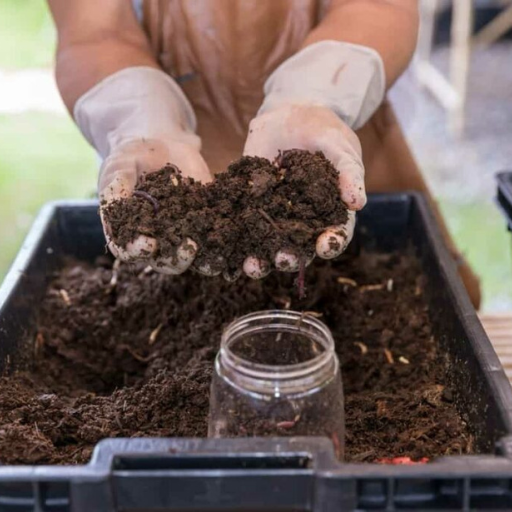
Understanding Organic Fertilizers
Natural sources such as compost, manure, bone meal and green manure are the main origins of organic fertilizers. However, synthetic fertilizers are made up of chemical compounds while organic fertilizers consist of plant or animal based materials. They add essential nutrients such as nitrogen, phosphorus and potassium which are necessary for healthy growth of plants to the soil. Organic fertilizers also improve soil structure, increase water holding capacity and enhance beneficial microbial activity in the soil. By slow release of nutrients over time, they ensure long term soil fertility and reduce nutrient runoff making them an environmental sustainable option for your garden.
Advantages of using Organic Fertilizers
- Enhanced Soil Structure: The physical condition of a soil can be improved by adding organic content to it through use of organic fertilizers thereby enhancing its structure and encouraging better root development. More air space is created within the clayey soils where water retention capability is increased by any presence of organic matter.
- Nutrient Release: Unlike synthetic fertilizers that quickly supply essential elements like nitrogen (N), phosphorus (P) and potassium (K), organic options tend to release these components gradually over a longer period. This continuous nutrient discharge supports ongoing growth in plants thereby reducing risks associated with leaching into water bodies.
- Microbial Activity: Also vital is fostering good microbial activity in the ground because this will help in breaking down decomposing matters so as they may facilitate transformation process before being taken up by plants easily. Enhancement on diversity through increasing number of different microorganisms present in soil helps to promote healthiness among plants thus strengthening their resilience against environmental conditions.
- Environmental Sustainability: Derived from renewable resources, besides minimizing dependence on chemicals, results into reduced risks due to chemical pollution and runoff that leads to contamination of larger environments like rivers . In addition, farmers can engage themselves further towards sustainable farming including long term land management practices hence contributing towards a sustained cycle in formulating agricultural approaches.
By concentrating on these benefits, growers can appreciate the importance of including organic fertilizers in their gardening practices for improved yields and sustainable environment.
Differences between Chemical and Organic Fertilizers
The differences between organic and chemical fertilizers are as follows:
- Source of Nutrients: Natural sources like compost, manure and bone meal provide raw materials for organic fertilizers while chemical fertilizers are manufactured out of inorganic substances that may include biodiversity from industrial processes.
- Nutrient Release: Over a period of time, organic fertilizers break down slowly releasing nutrients that plants need. Conversely, the quick-nutrient release by chemical fertilisers causes fast growth rates and potential soil degradation due to leaching.
- Soil Health: Organic fertilisers contribute to overall soil health by improving structure, enhancing microbial activity and increasing organic matter content. However, improper use of chemical fertilizers can destroy soil micro flora causing long term fertility decline.
- Environmental Impact: Chances of causing pollution through runoff as well as consequent environmental contamination is reduced with application of organic manure. If misused in excesses they result into waterway contaminations and emission of green house gases (GHG).
- Sustainability: Chemical input use results into depletion of natural resources while organics utilize renewable ones hence achieving ecological balance. This disrupts natural soil rebuilding process since chemicals rely on finite resources.
When gardeners understand these distinctions, they are able to make choices accordingly about plant health, soil vitality and environmental stewardship.
How Do Organic Fertilizers Improve Soil Health for Trees and Shrubs?
Enhancing Soil using Organic Matter
Soil health for trees and shrubs is improved by organic fertilizers; through enrichment of soil with essential nutrients and enhancing its structure. These fertilizers improve soil aeration and water retention, which are crucial for root development by utilizing organic materials like compost, manure, and bone meal. Organic fertilizers release nutrients slowly to ensure that there is continuous supply thereby promoting long term soil fertility. Besides this fact, organic fertilizer make more nutrients available to plants because they quickly break down the organic matter; thus increased microbial activity in the soils serves also to suppress diseases caused by microorganisms hence a healthier environment for tree and shrub growth.
The Role Of Microorganisms In Soil Health
When decomposing organic matter, microbes help enhance soil health for trees and shrubs into vital elements. Thereby, these microorganisms make complex compounds much easier for crops to absorb so as to improve nutrient availability in the soil. On the other hand, beneficial microbes like mycorrhiza establish symbiotic relationship with plant roots where they greatly increase both nutrient absorption as well as water uptake levels leading to better tree nutrition. Second of all, creating aggregates helps microbes in improving soil structure which in turn enhances aeration plus water infiltration through it since it results into more balanced ecosystem in the soils which ultimately suppresses pathogens that damage plants.
Long-term Soil Benefits of Organic Fertilizers
Inorganic fertilizers do not give such benefits but rather only provide immediate plant nutritional needs while compromising overall soil health or fertility. On top of enabling good root growth due to improved water holding capacity under sustainable system that have led better aeration over time these inputs have ensured that regular application of artificial manures was minimized by ensuring continuous availability of substances needed by plants from regularly applied manures on annual basis. Moreover, continued use of the enriched compost ensures sustainably supplying systems with adequate nutrients while minimizing chemical fertilizer applications sufficing enough populations and operations of the useful microbes in the soil for healthy nutrient cycles. This is because they help to develop a more balanced and resilient soil ecosystem that supports long-term plant health and productivity.
Which Organic Nutrients are Essential for Fruit Tree Growth?
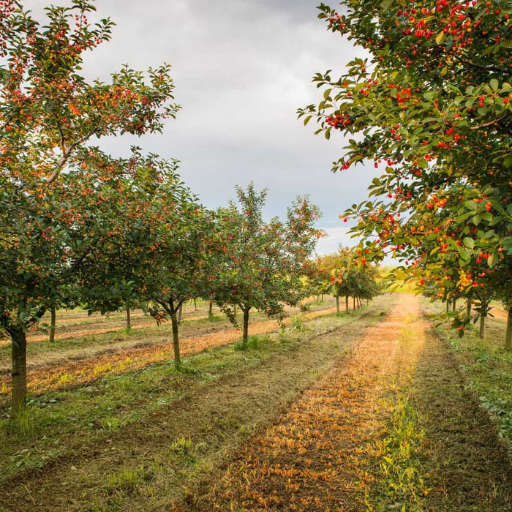
The Significance of Nitrogen, Phosphorus, and Potassium
Nitrogen, phosphorus and potassium are important elements for fruit trees as they grow and become productive. It is necessary to have enough nitrogen to facilitate growth of healthy leaves and stems which would support photosynthesis. Phosphorus is essential in the root development process as well as energy transfer within the plant supporting flower and fruits formation. On the other hand, potassium enhances overall tree health through water uptake regulation and enzyme activities thus increasing disease resistance and quality of fruits. These nutrients are core components that form a balanced fertilization strategy leading to vigorous growth and high yields.
Using Compost And Manure To Make Nutrient-Rich Soil
Inclusion of composts or manures into your soils can greatly improve their nutritional status thereby creating an ideal environment for growing fruit trees. Composts also provide a balanced nutrition profile composed from rotting organic stuff like vegetable peels, leaves or even lawn clippings while at the same time improving soil structure, moisture absorption capacity as well as its gas permeability; it also supports a good microbial ecosystem needed for nutrient cycling and prevention of diseases.
Manure obtained from animals such as cows, horses or chickens constitutes another excellent source of organic fertilizer rich in nitrogen, phosphorous and potassium. Well-rotted manure not only supplies vital nutrients to the soil but also acts as a source of beneficial microorganisms while enhancing moisture retention in the soil together with its tilth. Before applying it in the planting area it is crucial to ensure that this manure has been properly composted so that no pathogens or weeds seeds are introduced into the soil.
Through adding composts or animal waste on their farms gardeners will be able to create nutrient-rich foundations that will enable them get vigorous crops, high quality fruits besides improved health conditions for these plants.
The Role Of Natural Fertilizers In Tree Growth
Natural fertilizers play an important role in supporting the healthy growth of fruit trees through supplying essential nutrients which can be readily taken up by plants. These fertilizers include compost, manure, bone meal and seaweed which are naturally rich in nitrogen, phosphorous and potassium – all these nutrients are important for various physiological processes in trees.
Nitrogen is the main element responsible for leaf and stem growth since it promotes continuous green foliage. Phosphorus helps to develop roots as well as production flowers and fruits hence enabling trees to grow faster with more yields. Potassium is vital for general tree health; it promotes photosynthesis together with enzyme activities besides enhancing disease resistance and environmental tolerance.
Natural fertilizers change soil structure, increase microbial activity thereby increasing its water holding capacity (WHC) and nutrients retention ability that provides a better habitat for effective tree development resulting in sustainable fruit due to this type of agriculture. The natural choice therefore supports a balanced nutrient supply system while promoting eco-friendly ways of farming and keeping soils sound.
When and How Should You Fertilize Your Fruit Trees?
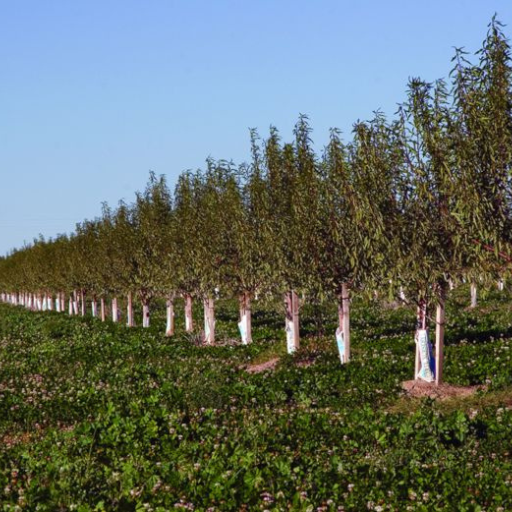
Best Moments for the Use of Organic Fertilizers
The moment before which and the time when you can best apply your fruit trees with organic fertilizers is early spring and late autumn. The process of fertilizing during early spring helps provide the necessary nutrients for good development, support flowering and fruiting just as new growth starts to take place. On the other hand, late fall is another perfect season; it happens right after harvesting; moreover, this time comes before ground freezes. In addition to replenishing depleted nutrients in a tree at this juncture, there are preparations made to enable the tree face winter appropriately, ensuring that it will go into hibernation healthy and come out strong on its next blooming session of a year. Therefore, one should avoid applying fertilizer during hot summer months or late in growing seasons so that there are no chances of a new growth that might be killed by winters.
Methods Applied in Applying Granular and Liquid Fertilizers
In case you decide to use granular fertilizers start by spreading them evenly under the canopy falling up to the outermost branches at the drip line. Then gently rake into topsoil for absorption purposes and prevent runoff. Afterward, water thoroughly to dissolve granules within soil fibers so that they can get ready for uptake.
When using liquid fertilizers mix recommended amount of concentrate with water as instructed by manufacturer then pour directly into soil encompassing tree’s root zones through watering can or any other applicable applicator such as hose-end sprayer. Ensure even distribution in order not to over-fertilize some specific spots of land. Liquid fertilizers may also be used in form of foliar sprays i.e. directly applied on leaves which leads to quicker nutrient absorption for plants since stomata are utilized here. Foliar sprays should occur early morning or evening hours when evaporation rate is low enough hence proper absorption across their surface.
How to Identify Nutrient Deficiencies and Addressing Them
To identify nutrient deficiencies in trees, it is necessary to check the leaves for some common symptoms such as yellowing, stunted growth and abnormal leaf drop. For instance, yellow leaves are a typical symptom of nitrogen deficiency whereas phosphorus deficiency may lead to dark green or purplish leaves that are smaller than normal. This could be seen as the browning or yellowing of leaf edges which usually indicates a lack of potassium. A soil test should be done when there is a suspicion of a nutrient deficiency to ascertain the actual nutrient levels and pH balance.
These deficiencies can generally be addressed through targeted fertilization; applying a balanced fertilizer or specific nutrient supplement depending on the results obtained from soil test. Nitrogen-deficient soils can be supplemented with nitrogen-rich fertilizers among others. Besides this, optimizing water usage and amending soils will ensure better nutrient absorption. Nevertheless, it’s significant to follow manufacturer’s instructions regarding both type and amount of fertilizer thus avoiding over-feeding that may further stress tree. It is equally important to observe regular monitoring as well as soil testing so as to maintain proper tree health throughout thereby eliminating future threats of nutritional deficiencies.
What are the Best Practices for Organic Gardening with Trees and Shrubs?
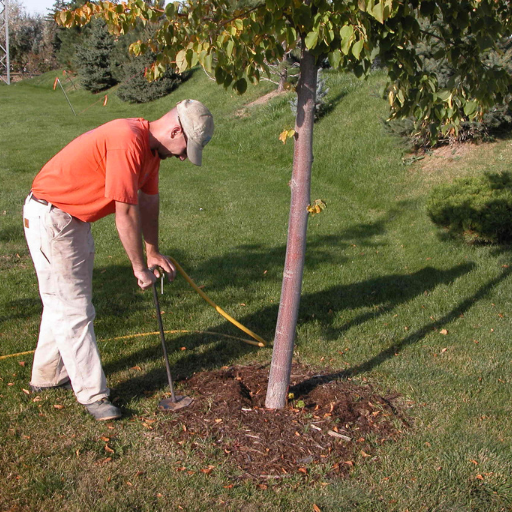
Choosing the Best Fertilizer for Specific Tree Types
The best fertilizer for your trees or shrubs depends on the specific needs of the plant as well as the existing soil conditions. For example, fruit trees are often recommended to have balanced fertilizers, like 10-10-10 which contains equal parts of nitrogen, phosphorus and potassium, especially during early spring before new growth begins. On the other hand, citrus trees do well with high amounts of nitrogen in their fertilizers that also contain micronutrients such as magnesium, iron and zinc.
Evergreen trees such as pines and spruces can benefit from a general purpose slow-release fertilizer applied in early spring or late fall that sustains growth throughout the year. Deciduous trees such as maples and oaks often require lower nitrogen ratios in order to prevent more leaf growth at the expense of root development.
Use of a fertilizer specifically formulated for acid-loving plants is good for azaleas and rhododendrons as these types of shrubs thrive under certain acidic conditions. With these types of fertilizers there is always additional sulfur to lower soil pH so that nutrients can be readily available to these species.
Knowing its natural habitat, type of soil it grows in and how it grows will benefit when you decide on what kind you want. Always check for a soil test then follow manufacturer’s instructions while applying just enough amount at right time to ensure maximum health and productivity of your tree or shrubbery.
Combining Organic Fertilizers with Health Soil Practices
Application of organic fertilizers alongside proper healthy soil practices will improve life status for your trees among other vegetation. The essential nutrients found in organic materials like compost manure and bone meal lead to improved soil structure while enhancing microbial activity within them. Compost should therefore be incorporated into soils to increase organic matter content which improves water holding capacity besides making nutrients available over long periods. Using mulch around plants helps control the soil temperature, retain moisture and prevent weeds from growing. Additionally, cover crops and crop rotation methods can improve soil fertility while reducing problems that pests present. This way of integrating organic practices help trees and shrubs to get food supplements as well as conserve a healthy garden ecosystem.
Frequently Asked Questions (FAQs)
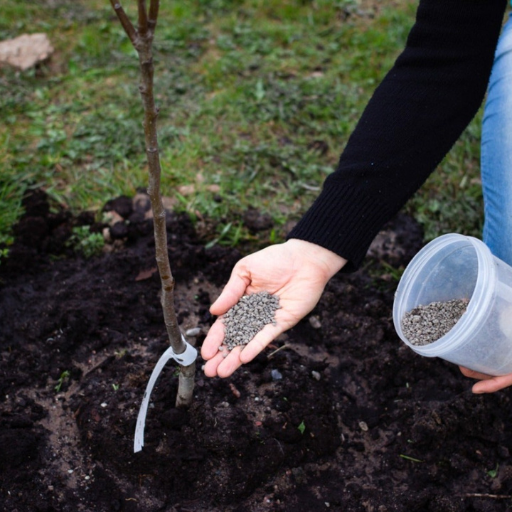
Q: What should I consider when choosing the best organic fertilizer for trees and shrubs?
A: When considering the selection of the best organic fertilizer for trees and shrubs, factor in specifics such as whether they are fruit bearing or evergreen trees, the kind of soil they are planted on and their stage of growth. When buying fertilizers go for products with tags that read organic, with contents such as bone meal, blood meal, kelp, fish fertilizers etc.
Q: How often should I feed my fruit trees with organic fertilizer?
A: Fertilize your fruit trees once early in spring and again in mid to late summer. Observe the guidelines about each individual fertlizer type lest you over-fertizile and burn them. They are also known as Organic/Natural Fertilizers.
Q: What is the difference between granular fertilizer and liquid fish fertilizer?
A: Granular ones can be sprinkled on top of soil where it breaks down slowly into nutrients during a prolonged period while liquid ones like fish emulsion mixed with water can be applied either by drenching roots or spraying onto plants’ leaves providing nutrition immediately. It will depend on what plant needs before making an informed decision.
Q: Is compost tea a good option for newly planted trees and shrubs?
A: Yes, compost tea is one alternative among other organic/natural fertilizers which is perfect for new shrubs and young tree planting because it provides necessary nutrients required by these plants. It does not burn up young plants unlike others thus promotes root development plus overall well-being.
Q: Can slow release fertilizers be used for all types of trees and shrubs?
A: As far as most types of trees or ornamental shrubs are concerned, they would really benefit from slow-release forms since they provide nutrients evenly over a more extended period.
Q: How does organic fertilizer enhance plant growth compared to synthetic fertilizers?
A: Organic fertilizers stimulate soil structure, boost microbial activity and slowly release nutrients that enhance plant growth. They rarely cause nutrient burn and usually contain kelp, bonemeal, compost among others which are good for the soil unlike their synthetic counterparts. In contrast to synthetic fertilizers, organic ones provide more support for long-term health of plants apart from being environmentally sustainable.






